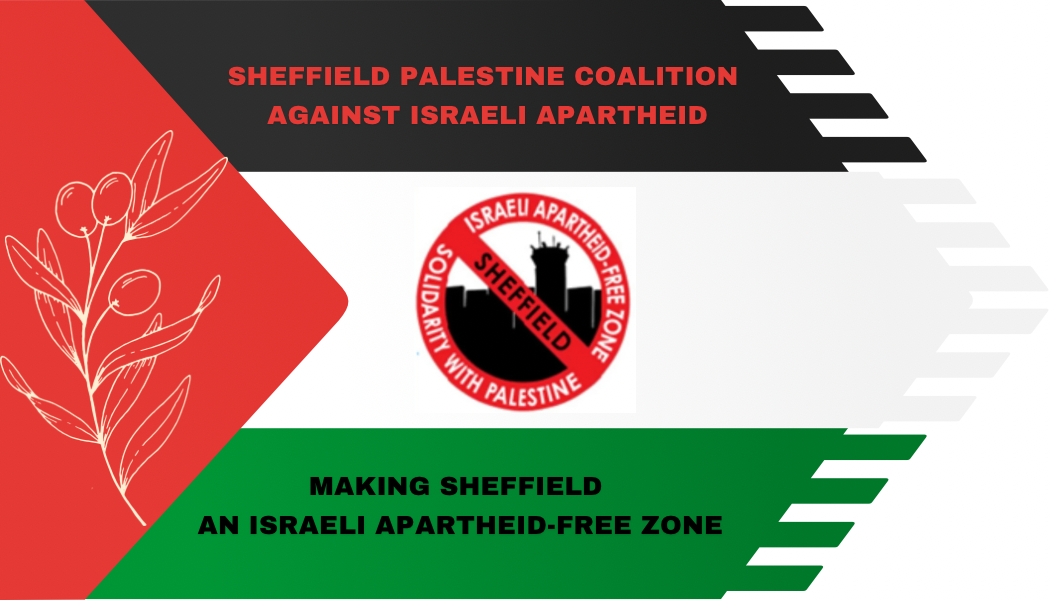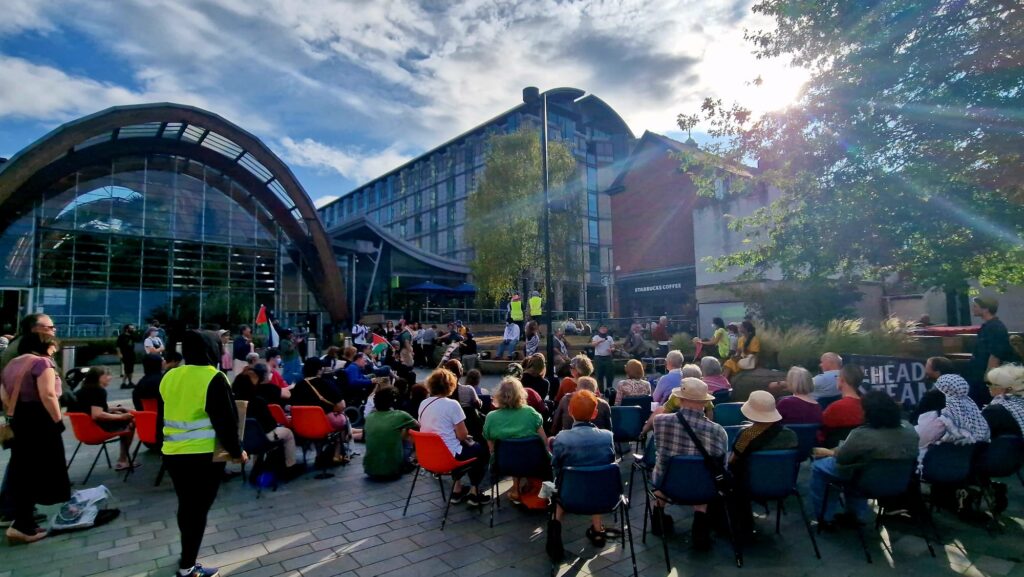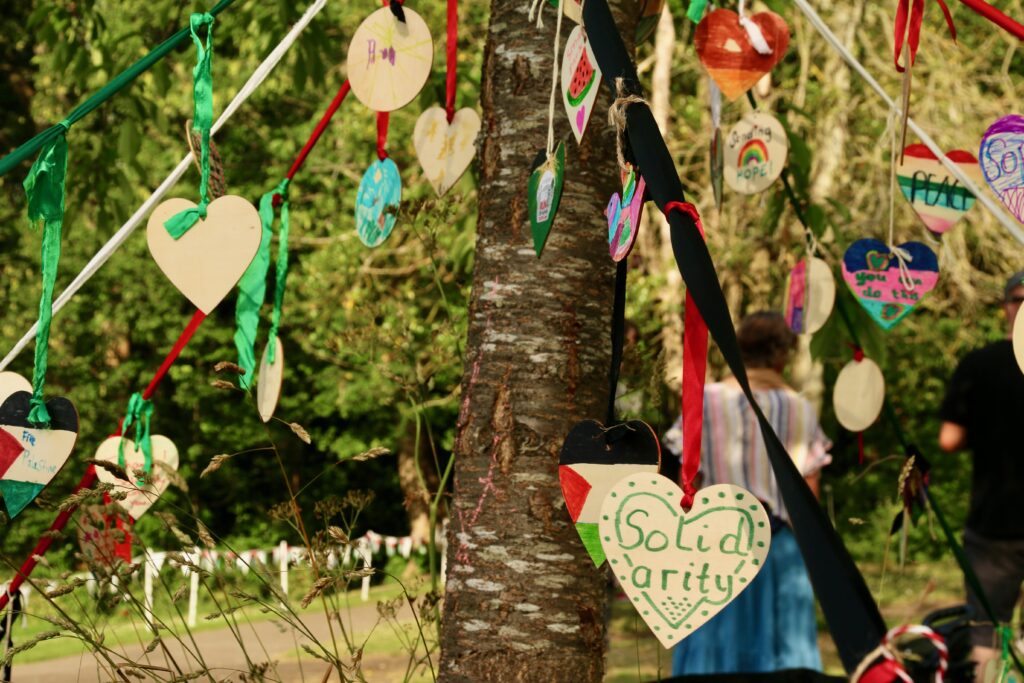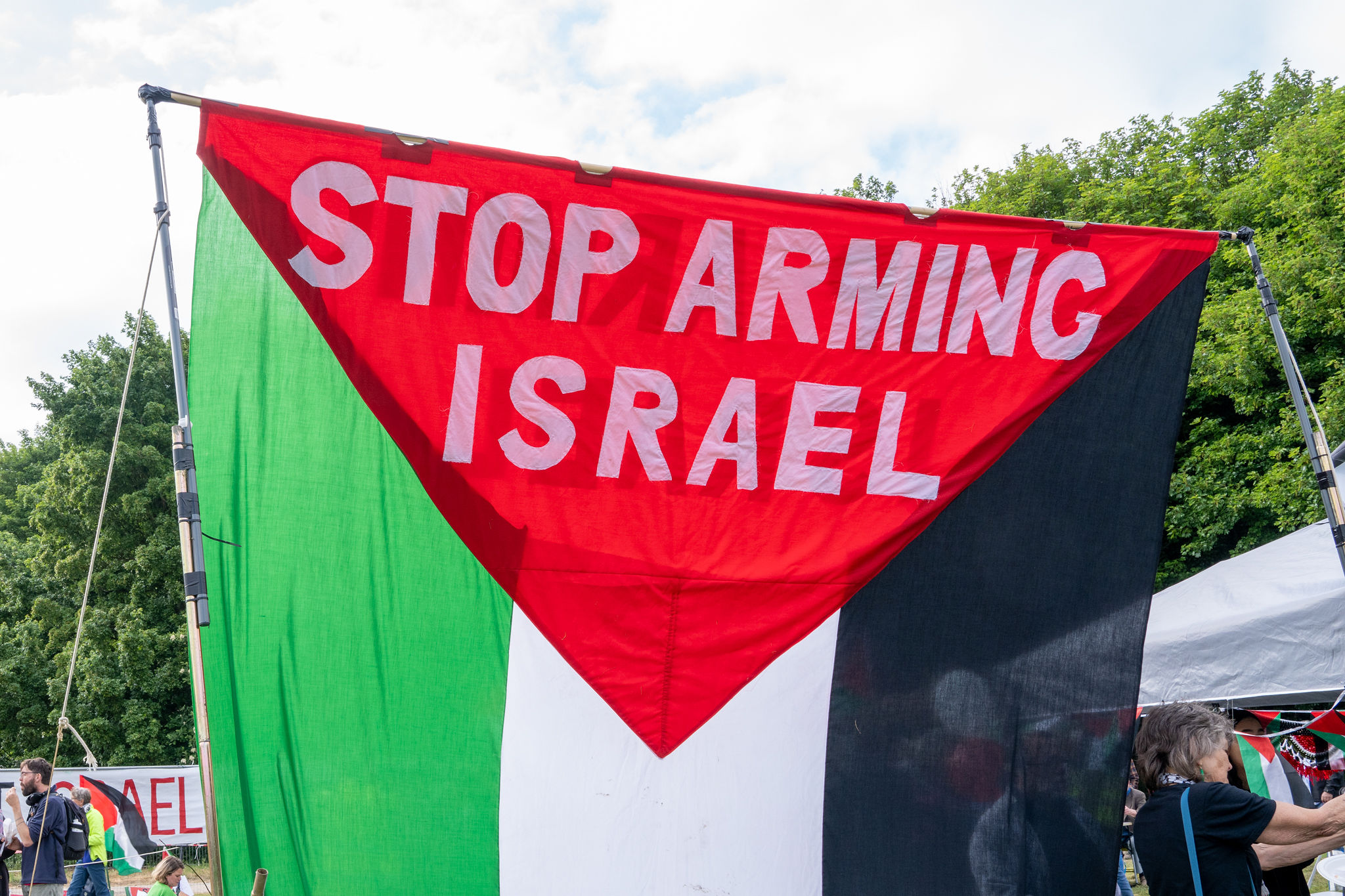Success and delight
Let’s start with ‘there’s no question’ – those of us shouting out for justice in Palestine have been delighted that the documentary film, No Other Land (2024, Palestine, Norway), was awarded an Oscar (USA, March 2025) for Best Documentary Feature.
It has a total so far of 69 film festival wins, and 31 nominations which are next best to winning and valued as such. Sadly, the film has been caught in a controversy about the politics of its production.
The film’s 4 makers are listed as equal co-creators – Basel Adra, Hamdan Ballal, both Palestinian, Yuval Abraham and Rachel Szor, both Israeli. The film features Basel and Yuval – meeting in Basel’s family village in Massafer Yata in Palestinian West Bank – suffering (Basel) and observing (Yuval) the brutality of Israeli occupation and settler invasion of Palestinian land, between 2019 and 2023.
The first prize the film received was at the prestigious Berlinale Film Festival (Germany) in 2024, where it caused considerable dispute. Modern Germany’s ‘lasting guilt’ has led to a heightened sense by the Government of an excessive need to pay more heed to calls of ‘anti-semitism’ than to the rights of Palestinians or any free speech or protest in support of them. The speeches made by the No Other Land filmmakers at the Berlinale, pinpointing the different life experience of Basel and Yuval led to loud claims that the Festival was ‘anti-semitic’ for showing the film, and the Mayor of Berlin ended up saying that her (clearly spontaneous) applause at the film’s prize was for the Israeli, Yuval, not the Palestinian, Basel.
Cultural Boycott
The success of the anti-South African apartheid boycott encouraged the call in 2001, shortly after the start of the Second Palestinian Intifada, for a boycott of Israel. This was a call for people across the world not to buy Israeli industrial or agricultural products or visit Israel on vacation; and for governments to sever economic relations and preferential trade agreements with Israel. Further calls for an academic and cultural boycott were made, first by PACBI (Palestinian Campaign for the Academic and Cultural Boycott of Israel), and later made stronger by the formation in 2005 of the global BDS Campaign (for Boycott, Divestment and Sanctions).
The call for cultural boycott of Israel is relevant to No Other Land. It’s important to note that the cultural boycott call “does not target individual artists according to their nationality, their beliefs, or the content of their art” but “on [the normalising ties of their cultural production] to the Israeli State” as a benign non-occupying State (The Case for a Cultural Boycott of Israel, Artists for Palestine UK, APUK, 2014).
The Production Process of No Other Land
No Other Land has been called out by PACBI for falling into this trap of NORMALISATION because the production was aided (though ‘not financially’) by an organisation called Close Up, which is funded by the Israeli State. PACBI points out that hundreds of Palestinian or Arab films do not fall into that trap, so why did No Other Land. Bizarrely, at the same time, Israel’s culture and sports minister, Miki Zohar, reportedly called the film’s Oscar win “a sad moment for the world of cinema,” accusing the documentary of “defamation of Israel.” (The Hollywood Reporter, by Scott Roxborough 10 March 2025.
In recognition of what the film says about the abuse of Palestinian human rights by Israel and the need to ensure this message reached an international audience, PACBI did not publish its statement of normalisation until after the Oscar win:
In the colonial West, state, corporate and institutional complicity in Israel’s occupation, apartheid and genocide is still dominant – indeed it makes up most of all global complicity. Therefore challenging the racist dehumanisation of Palestinians there is critical […]. In such a context, a boycott of the film in mainstream circles, as opposed to Palestine film festivals and solidarity circles, could be counterproductive. Raising awareness about the struggle against Israel’s military occupation and ethnic cleansing through the focus on Masafer Yatta in this film is obviously important to expose in such contexts.
( see the full statement here)
All the contradictory responses around the film’s (pre-)production Israeli-funded link are culturally and politically important, but there is a bottom line to start thinking about this – PACBI’s anti-normalisation statement, as the FAQs in their statement about No Other Land demonstrate.






